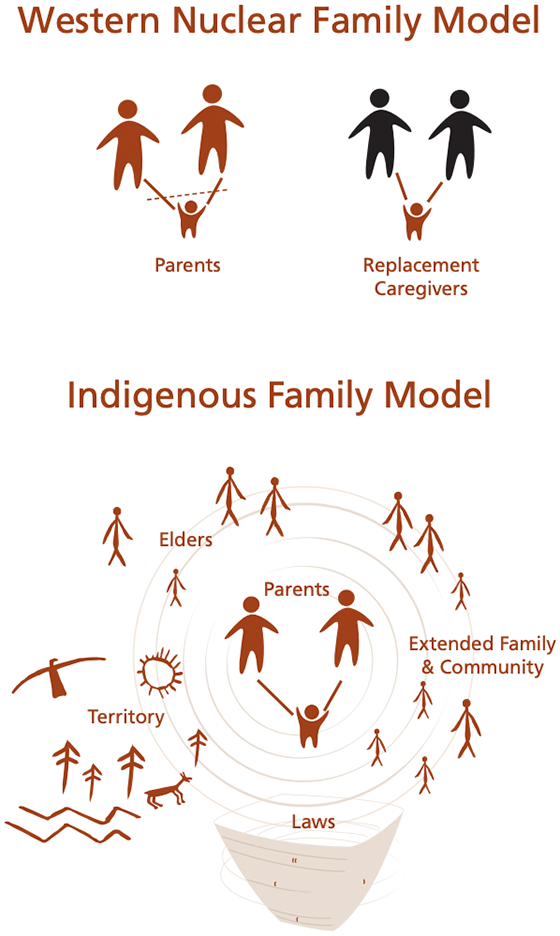Indigenous peoples in BC are disproportionally and intergenerationally impacted by Adverse Childhood Experiences (ACEs). Mitigating these impacts requires nurturing a sense of belonging and connection to Indigenous cultures.
Crucial to Canada’s reconciliation with Indigenous peoples is understanding that Indigenous legal orders existed prior to colonization and though they were undermined by colonialization, they still exist.
The Collaborative is committed to inclusion of Indigenous peoples in its processes and to the integration of Indigenous laws and perspectives into the redesign of the family justice system in BC. Taking a holistic family-focused approach to transforming the family justice system is consistent with what we know about Indigenous laws of child and family well-being.
Indigenous perspectives are diverse and grounded in different models than the nuclear family model that drives Western thinking. Within Indigenous contexts, the circle of people who hold cultural responsibilities, obligations, and rights in relation to children is often much wider. Indigenous laws recognize the importance of extended family, kinship, and cultural relationships, including deep connections to land and language. Elders, as well as cultural and spiritual supports, also play key roles in guiding and supporting children. Learn more here: Wrapping Our Ways Around Them (Second Edition)

